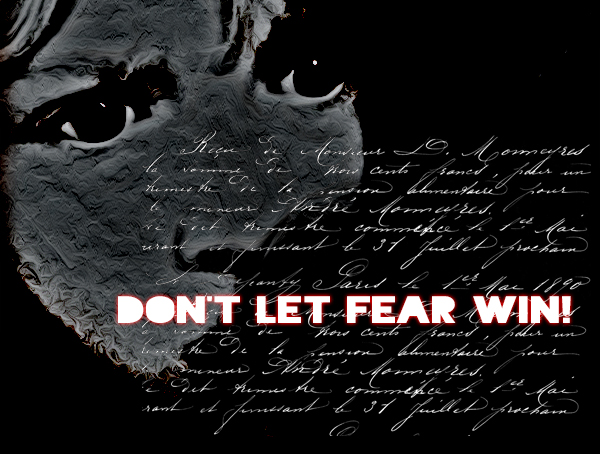Our dreams define us. They make us who we are.
Maybe your dreams are quirky—square blocks that can’t fit in the world’s round holes. That’s okay. They are you. Maybe you’ll use your dreams to create something unique. Or not. Perhaps your dreams aren’t that sort. Even unfulfilled dreams have the power to sustain us.
What Are Your Dreams?
What did you want to be when you grew up? I wanted to be a writer … or the President of the United States. Whichever. (In my 4-year-old brain, it didn’t matter in the slightest that I was Canadian!)
When you were a kid, what did you love?
Don’t laugh, but my very favorite thing when I was a kid was the big/towering/huge maple tree in our backyard. I think I spent half my childhood climbing all over it. In my memories it is a massive thing, with boughs the size of a child’s waist.
Well.
I went back and visited my old home and—yep, you guessed it—the tree was still there but it was not at all big or towering or huge. But that’s okay, I still got all teared up and hugged it.
Dreams That Can Be Achieved
Some dreams—like my becoming President—are doomed. Sure, I could have changed my dream to becoming Prime Minister of Canada, but it’s just not the same.
That’s not the only dream I’ve had to let go of over the years. Being an astronaut is forever beyond my reach due to, among other things, my propensity to become motion sick if I walk too fast. (I exaggerate, but not by much.)
My point is that, while impossible dreams like this are wonderful and lend themselves to the richly textured background of our imaginative lives, they demonstrate that there are two kinds of dreams: those that are physically, actually, possible and those that … well, not so much. And that’s fine. But if your dream IS possible, then what are you waiting for?
Why Our Dreams Fade And Die
There are all sorts of reasons why folks don’t try to fulfill their dreams but I think the most common is fear. To paraphrase Frank Herbert, fear is the dream killer.[1]
Fear of Failure
I think that the number one reason dreams fade and die is the fear of failure. We fear that we’ll start off on some wonderful adventure—we’ll try to write a book, or a short story a week, or we’ll start to save for an epic around-the-world trip—but when all the work is done, when the vacation is finished, all that will be left behind is emptiness. Regret.
The fear is that the book will be panned by critics, or that the short story collection would never sell, or that the around-the-world-trip would cost an inordinate amount of money and all you’d discover about yourself is that you’re a stay-at-home kinda person. Or worse, you could lose all your money and be stranded.
I’m not saying that every single dream you have will come true. I can’t see the future. But one thing I do know is that if one never tries to fulfill one’s dreams then that guarantees none of them will come to be.
You’ve heard it before, I’m sure, but it’s true: nothing risked, nothing gained.
Also—at least this is what I tell myself these days—if one lets fear control them then they will be forever swerving away from things, trying to avoid the bad rather than actively seeking the good. The former is existing, the latter is living.
Fear of the Unknown
Closely behind fear of failure is fear of what we don’t know, of what we can’t predict.
Personally, I hate uncertainty, but if there’s one thing I’m pretty sure of it’s that life is essentially uncertain. Just as you (and by ‘you’ I mean ‘me’) begin to think you’ve got a handle on this whole life thing, right then is when something completely unexpected happens and thoroughly bashes your world to pieces. Welcome to the unknown, please debark in an orderly fashion.
Errr, anyway. Getting back on track …
The key, here, is to take a deep breath and attempt to rationally assess the situation. A friend of mine—he’s a manager in a local high tech firm—once shared the following with me and, believe it or not, it has helped.
3. Ask yourself: If I do this, what is the best that could happen?
Ask yourself: If I do this, what is the worst that could happen?
Ask yourself: How likely is it that the worst will happen?
- Is there anything you can do before-the-fact to prevent the worst from happening?
- If the worst happens, could you repair the situation? If so, how?
(By the way, I know this way of assessing and mitigating risk didn’t originate with my friend, but that’s where I first heard about it.)
If the worst thing that could happen is complete and total devastation—the life-equivalent of a thermonuclear explosion—then maybe back away from that possible dream. Let it go on its way, but release it slowly and hope it doesn’t become startled.
On the other hand, if the worst thing that could happen isn’t very bad at all, or if it is easily prevented, or if you could mitigate the damage if it occurred, then why not try and live your dream?
Fear of Rejection
This is one of my personal boogeymen. What if people read my work and think I’m terrible?!
My rational mind has a reply ready: of course some people will hate your work. That’s inevitable. But, hopefully, some people will love it.
Whenever I see NO one star reviews on an otherwise popular book (say, over 100 reviews), I expect one of two things: first, the book is a classic that everyone agrees is awesome. Second, something is off. It could be that the writer’s friends and extended family have read the book and dutifully left nothing but glowing praise, but those aren’t the reviews I’m looking for. So don’t fear one star reviews! Look at them as weird kind of badge of honor.
Also, a book written for a niche market can easily acquire a lot of one star reviews if read by folks outside the niche. There’s nothing wrong with these people’s taste, the book just isn’t for them. And that’s fine. If your niche readers are as passionate about your work as you are, then you have a real chance of making a go of it.
Persistence can help to drive out our fears. Don’t lose sight of the folks who 'get' your work, who understand you. If your work is selling, then obviously it’s reaching people who appreciate it. Let the haters hate.
* * *
Okay! This article is longer than I thought it would be. I had wanted to chat about tips and tools writers can use to shape their dreams into reality. Perhaps another time.
Question: When you were a kid what did you dream about? What did you want to become when you grew up? Do you have a tip for how to defeat fear and follow your dreams? Please share!
(What follows is an affiliate link. Every time someone buys something after clicking an affiliate link, Amazon gives my site a small percentage of the sale price. This is one of the ways I’m keeping the lights on at karenwoodward.org. I promise I will never post an affiliate link to a product I don’t believe in.)
I love all things audio: podcasts, radio, audiobooks. Especially audiobooks. I’ve used Audible and can recommend it without hesitation. Try it for one month, free!
Try Audible and Get Two Free Audiobooks
Notes:
1. “I must not fear. Fear is the mind-killer. Fear is the little-death that brings total obliteration. I will face my fear. I will permit it to pass over me and through me. And when it has gone past I will turn the inner eye to see its path. Where the fear has gone there will be nothing. Only I will remain.” Frank Herbert, Dune. The Litany Against Fear.










